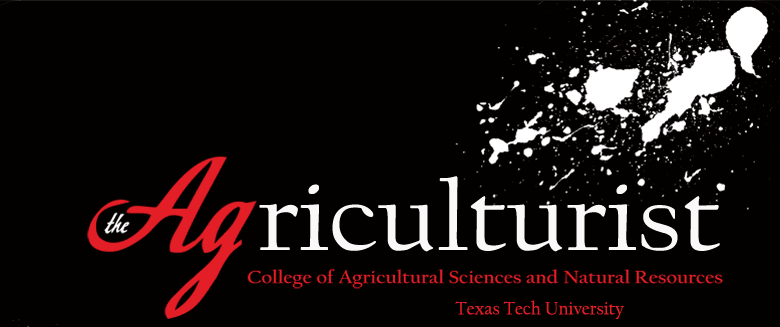
Table of Contents
Features
Agriculture: We Can Sustain It
Socializing Agriculture
Painter of Quiet Places
An Apple a Day
Sustaining the Four Sixes
Hitting Pay Dirt
The New Face of Agriculture
The Winds of Change
Avatars Animate Agriculture
Professors in Training
Going Green
Saving Lives One Plan at a Time
Protecting Our Food
Quality Cells, Consumer Buys
Tech's New Mate
Micro ZAP
Food Saftey in Mexico
Expanding Opportunities
No Bits About It
The Family Farm Fire Man
Around the World with CASNR
Live From Texas Tech
Looking Forward
Getting Schooled
A Cotton Senstaion
Living and Learning
More Than a Trophy
Online Exclusives
Alumni Lance Barnett: Unpeeled
Agricultural Education and CommunicationDepartment Shines in 2010
CSI: Classroom Soil Investigation
Facing Nature
GINuine
Healing Hooves
Parking and Partying in Style
Raider Red Meats
Standing TALL
Tech Takes Flight
West Texas Cotton Goes Global
Avatars Animate Agriculture
By Sam Gadd
Working in a crisis can be an overwhelming task for any communicator. For students in the Risk and Crisis Communications course at Texas Tech University, the use of avatars in the virtual world of Second Life is allowing them to experience a crisis without the consequences.
Use of Second Life in this course is part of a joint research project between Texas Tech University, Texas A&M University and The University of Arkansas. The project is a result of the U.S. Department of Agriculture Higher Education Challenge grant.
David Doerfert, agricultural communications professor and the lead researcher for the Second Life project at Texas Tech, said the advantages of using Second Life are profound.
“As an instructor, I can’t cause a crisis in a class so students can learn how to operate within the crisis,” Doerfert said. “Second Life provides the avenue for them to learn how to work within a crisis environment while not creating one on the university campus.”
Christy Witt, a graduate assistant with the course, said it is beneficial for students to reduce anxiety about crisis management through the simulation. It is crucial for emergency response. “The idea is when these students face a crisis in their future careers,” Witt said, “students will have had experience and they’ll know what to do.”
To access Second Life, students must log into the program that uses a server dedicated to the class’ students. This isolated world is called an “island” named “AgriCulture.”
AgriCulture was modeled after an east Texas county with urban, suburban and rural components including farms with crops and livestock. While not to the detail of the movie, students will hear cows moo and a cat purr as well as the sirens of police cars. The students are also provided money (Linden dollars) in this environment that allows them to purchase items and services as well as clothing to dress their avatar as they wish.
Laura Lemons, a graduate student from Raton, N.M., is enrolled in the class and said one of the advantages of using Second Life is the relative safety of conducting a full-scale disaster online.
“People can’t just wander here by mistake and wonder what’s happening when our crisis begins,” Lemons said, “and we’re doing press conferences and they’re hearing us talk about hurricanes or fires or pest infestations.”
This application of Second Life is being observed very carefully to see if it might have any potential for future use at other universities. This task has been given to the University of Arkansas, who manages evaluation throughout the simulation.
“The overarching idea of the project is to use Second Life in this course,” Witt said, “but then to eventually expand if this seems to be effective in helping students understand crisis communication so it will eventually be a training aid for other universities to use to help prepare their crisis communicators.”
The technology revolution has produced incredible works of art on the big screen, and now has provided graduate students with the means necessary to ensure they are ready to handle any crisis the world hands them.